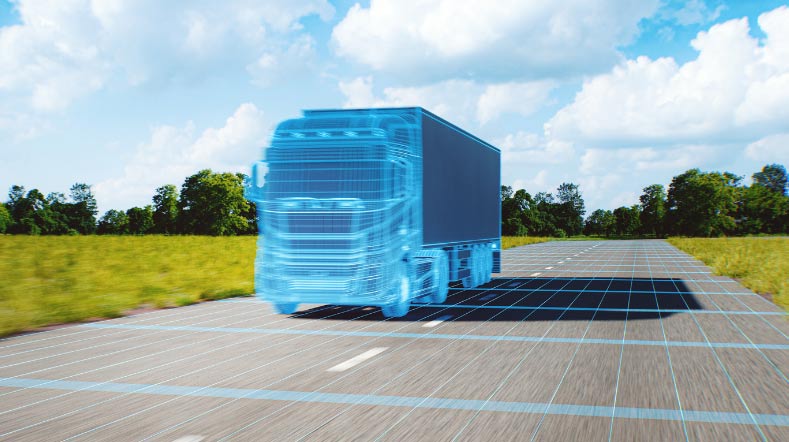
Data Driven Logistics: the future of logistics
There is increasing demand for logistics due to the growth both in population and prosperity. In this context, making logistics processes more efficient and sustainable is cost-effective and supports the climate and the quality of life. And, by enhancing and combining digital data, it’s within reach. Getting there requires new innovations, awareness and the commitment of stakeholders. That's what we are working on.
Benefits and necessity of Data Driven Logistics
By combining and enhancing digital data, logistic processes can be made more efficient, faster and more sustainable. Think, for example, of the exchange of data between the owner of the goods and the customs authorities, and between the terminal and the recipient. These data can then be enhanced with data from sensors installed in the containers, or with environmental data such as weather forecasts, which are important for predicting the arrival time of ships. This is why we bring parties together to work on clearly-defined solutions.
Many companies are reluctant to give access to and share data. That is why we’re developing tools to emphasize the benefits and necessity of data sharing. For example, ‘serious games’, where participants experience for themselves the advantages of sharing (see box). This gives companies the confidence that sharing data can be safe and beneficial. We are also developing 'demonstrators', to show whether and how data sharing can lead to new logistics concepts. In addition, we help the Dutch business community with our expertise and bring relevant parties together.
Data analysis
The logistics sector is undergoing a digital transformation. Developments such as sensor technology, the ‘Internet of Things’ with 5G, LoRa and NB-loT, blockchain technology and autonomous vehicles, are accelerating this transformation. How can these developments be translated into useable knowledge? The solution is data analysis: collecting, processing and cleaning up data to extract useful information. When given these new insights, organisations make better logistical choices. At our Smart Data Factory for Logistics, we show you how this can be achieved.
Benefits of Data Driven Logistics
Logistics sectors benefiting from data-sharing innovations include container transport, construction logistics, urban logistics and the transport of perishable goods. For example, improved estimations of truck and ship arrival times, thanks to real-time data. This means more efficient and cheaper logistics. Data-driven innovation also offers opportunities for new revenue models. Companies further along the value chain can work in more structured ways, and are willing to pay for those benefits. In addition, the social costs decrease and the number of kilometres driven is reduced, making logistics more sustainable.
Three examples of efficient logistics through data
We help the logistics sector to develop and implement solutions for real-time data sharing. After all, vehicles, infrastructure and operating systems are constantly collecting data, and making this available in real time helps to create new applications for more effective and efficient transport. Three examples:
1. Transport prediction and smart-planning
Accurately estimating the travel time of each journey in the transport sector reduces waiting time at the terminal or in the distribution centre. This allows the planning in the terminal to be optimised, using traffic density data combined with weather and traffic data.
2. Planning approaching ships
Real-time data regarding the location and speed of ships improves the planning of approaching ships and expected arrival times at a lock. This reduces waiting time and congestion can be better predicted. The dashboard visualises which ships are approaching the lock, and their expected time of arrival.
3. Controlling traffic in the city
Real-time data on traffic density in the city and the travellers' reasons for travelling (freight or passenger cars) make it easier to apply the appropriate measures. This could result in a different route, different travel times or restrictions for specific target groups rather than a total road closure. This can also improve air quality. We apply this, for example, by linking existing Rotterdam data sets in order to obtain new insights.`
Vision on logistics
Want to know more about our vision on logistics? Read the vision paper ‘Logistics 4.0: The Netherlands needs a digital compass!’
Get inspired
Close collaboration and learning by doing is the way forward in Connected Automated Transport


Connected Automated Transport: from theory to wheels on the road






